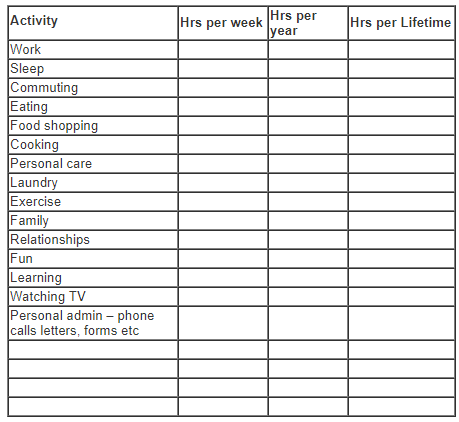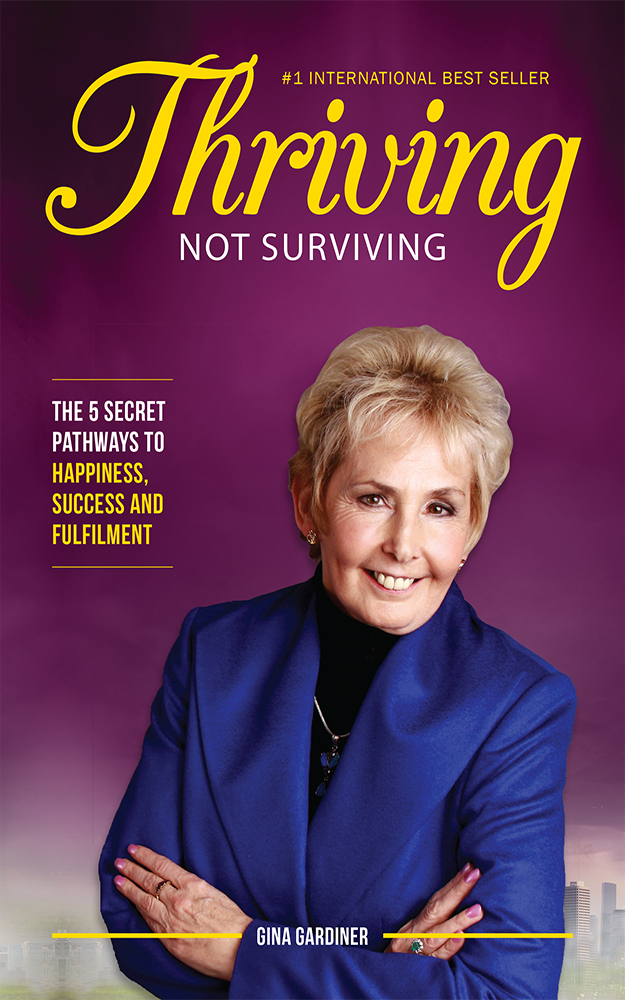I am always struck how often we hear about the same theme in several different contexts. I have been amazed at how often the theme of time has come up this week.
Several clients have chosen to focus their session on their lack of time and the negative impact this has on their lives this month – no surprise there you might say. Ask most people about their lives and they will tell you that they never have enough time.
Modern technology was supposed to free us all up for a life of leisure and yet so many people are rushing about chasing their tails. With all the labour saving gadgets and convenience foods, dishwashers, microwaves, computers and faster modes of transport we seem to have less time than ever to spend with loved ones, to learn and read and simply to reflect. One has to ask why?
I was on a course recently where I was really struck by one session with the theme of time. Ian Mc Dermot the course leader asked us to think about the way we use our time. We were reminded that each day has 24 hours, which gives us 168 hours in a week, 8736 hours in a year. In lifetime of 70 years, we have 613200 hours to use. Sounds quite a lot doesn’t it.
We were given a table of the number of hours in a lifetime of varying lengths. For example, if you live to 100 you have 876,000 hours to spend. In fact the table went up to age 120 just so we wouldn’t self limit!
Just think about the time you have – you can use it once and once only.
You might think that spend is a strange word to use but we all make choices about how we spend our time, for most of us these choices are made at an unconscious level and the result is not always as we would wish it to be. We also choose how to spend our money and expend our energy.
Now consider your lifetime and how you have chosen to spend your time so far. Have you truly made the most of your time? Do you want to go on using your time in the same way in the future?
You may find it useful to complete the chart – give a ballpark figure rather than getting bogged down. I’ve put in some headings but use the ones you find appropriate and add any of your own. (Assume a lifetime of 70 years for this exercise.)

What do you notice?
- Was the result what you expected?
- Do you actively choose how you spend your time?
- Does the way you spend your time make you happy?
- How would you like to spend your time in the future?
- What needs to change if you are to spend your time doing the things you value most?
Now look forward into the future to the end of your life.
- Look back over those years and consider how you would like to be remembered?
- What legacy would you like to leave?
Managing time is about prioritizing and making choices. It often requires us to create boundaries or to learn to say no – to others and maybe to ourselves.
Even a small change can make a significant difference to the quality of your life – what change could you make today which would make a difference to the quality of your life over time?
Organizations
It would seem that organizations are beginning to understand the need to change their culture - to work smarter rather than longer. More and more people are facing the impact of having a poor work life balance, resulting in burn out and stress. If staff are too busy reacting to the demands placed upon them it becomes impossible to think strategically, to be proactive and anticipate needs. Productivity is reduced, job satisfaction becomes less and stress levels go through the roof leading to absenteeism and loss of performance.
We ran a very successful session for the Marketing Team at the Head Office of one of the High Street Banks in November. The session focused on effective and efficient ways of working. In this first session the team created strategies for ensuring that they manage other people’s unrealistic expectations, meetings and emails and they have identified lots of ideas for impacting positively on others within the organization which will be the focus for the coming months.
The feedback has been great. The team feels more together and in control of their diaries, they are feeling energized and enthusiastic.
A really productive afternoon.
Recommended Read
The 8th Habit: From Effectiveness to Greatness by Stephen R. Covey
This book looks at using your time in line with your values and so much more. It stands alone but is even more effective if you have read his book “The Seven Habits of Highly Effective People”
I use a modified form of his time planning sheet as do several of my clients. We all find it incredibly helpful.



